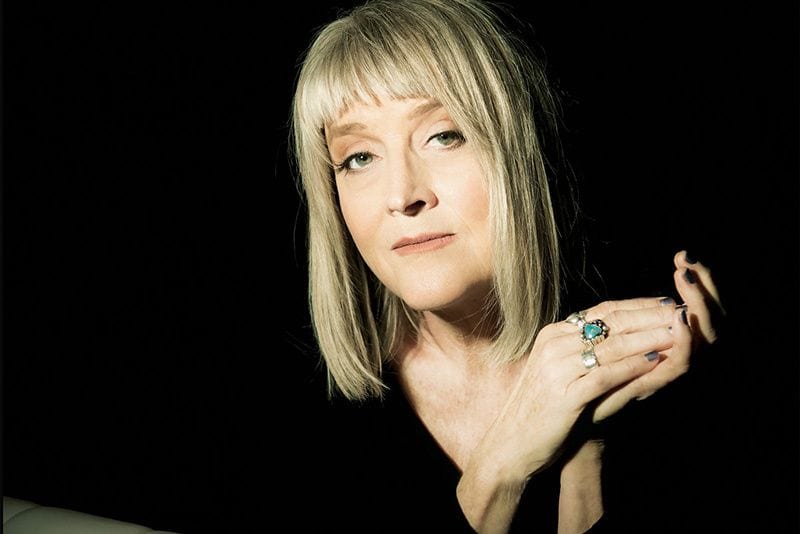Kim Richey turned 60 more than a year ago. On her eighth studio album, she’s at that awkward age; too old to sing about young love, too young to give up on romance. She sees the repeating patterns in life’s journeys and now can tell the difference between the headlamp of a train running down the track from a light at the end of the tunnel. Richey understands that not all promises need to be spoken to be broken and that walking away doesn’t mean always mean leaving for good. She wears her hard-earned wisdom like a rose upon her chest. A medal implies bravery. Richey tries but admits weaknesses and failures.
The 12 well-crafted self-penned songs on her latest release are deceptively simple. They bear an initial resemblance to conventional country folk. However, the initial likeness is misleading. What appears to be conventional actually subverts predictable songwriting. Consider a track such as “Not for Money or Love” about a man who returns from war to marry and have a child dies in a mining accident before the kid is born. Richey sees the big picture. Everybody needs somebody, but that doesn’t mean relationships work out despite the best of intentions and the feelings of love. Stuff happens. Just existing means living on the edge and even the strongest wings won’t stop one from eventually falling.
Richey plays her acoustic guitar with an unpretentious air that keeps the melodies clean. Producer (and bass player, pianist) Brad Jones creates nuanced arrangements He employs some of Nashville’s best studio talent including Jerry Roe and Josh Hunt on drums and a host of multi-instrumentalists including Pat McLaughlin, Dan Dugmore, Pat Sansone, Doug Lancio, Chris Carmichael, and Dan Cohen on pedal and lap steel, mandolin, violin, bouzouki, strings, electric banjo, resonator and such, as well as guest stars Chuck Prophet and Robyn Hitchcock on guitar. Despite the number of players used on the album, most songs just feature four instrumentalists to keep the sound tight.
Regarding vocals, Richey often mixes hers with a male voice to create a harmony that adds another level of meaning to a track. For example, McLaughlin matches her note for not on “The Leaving Song” so when the lyrics say “This ain’t no leaving song / You ain’t done nothing wrong” the listener understands the opposite is true. Both members of the couple are saying, “It’s not you, it’s me” in code to make the breakup easier, but they are breaking up.
The same is true on “Whistle on Occasion” where Richey and Chuck Prophet sing and strum as one. The two express their need for each other while acknowledging their individuality. Will they stay together or separate is anybody’s guess. The fact that they share the same sentiments and mindset doesn’t guarantee what will happen next. The world continues to turn. Tomorrow is another day.
Because Richey is best known as a songwriter and collaborator who has worked with notables such as Ryan Adams, Trisha Yearwood, Jason Isbell, Rodney Crowell, and Reba McEntire, there’s a temptation to hear these songs as demos for a bigger act to the charts. That would be a mistake. While someone such as Garth Brooks could take a song like “Chase Wild Horses” to the top ten, he wouldn’t be able to improve on the original version here.
Richey and company take her narrators as far as they can go—the edgeland where the dead-end road and trail of tears meet. Standing on the brink is the best one can do. Richey reports on what she finds there.

